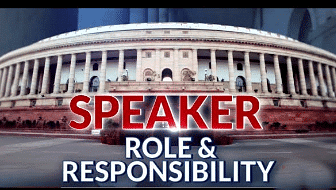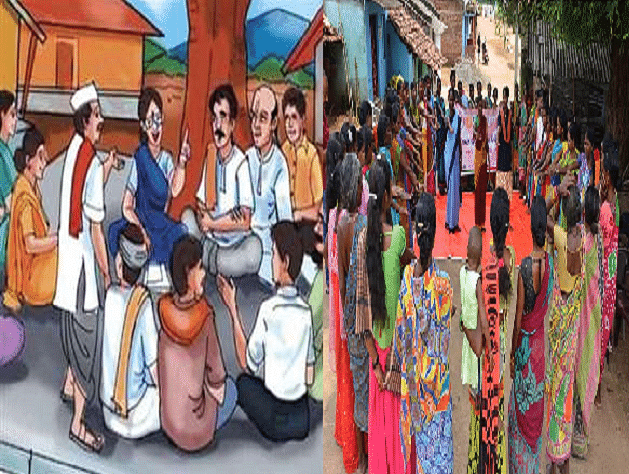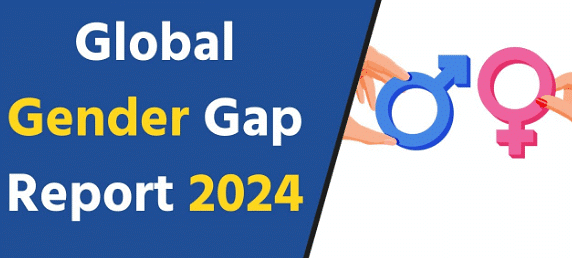Weekly Current Affairs (8th to 14th June 2024) Part - 2 | General Test Preparation for CUET UG - CUET Commerce PDF Download
Role of the Speaker

Why in News?
- The Speaker plays a crucial role in the functioning of the house, especially in a coalition government.
- The balance of power between the ruling party, allies, and the opposition is maintained by the Speaker.
Key Facts About the Speaker in India
- The Speaker is the constitutional and ceremonial head of the House.
- Each House of Parliament has its presiding officer.
- In Lok Sabha, there is a Speaker and a Deputy Speaker; in Rajya Sabha, a Chairman and a Deputy Chairman.
- The Speaker is assisted by the Secretary-General and senior officers for parliamentary activities.
- The Deputy Speaker functions in the absence of the Speaker.
- A member from the panel of Chairmen presides in absence of both the Speaker and Deputy Speaker.
Election of the Speaker
- The presiding officer is elected by a simple majority of members present in the House.
- Typically, the Speaker is from the ruling party, and the Deputy Speaker from the opposition.
- Exceptions exist as seen with GMC Balayogi and Manohar Joshi in the 12th and 13th Lok Sabha.
Removal of the Speaker
- The Lower House can remove the Speaker through a resolution with a 14-day notice.
- Removal can also occur if the Speaker is disqualified as a Lok Sabha member.
Sources of Power and Duties
- The Speaker derives powers from the Constitution, Lok Sabha rules, and Parliamentary Conventions.
Provisions for Independence and Impartiality
- The Speaker can only be removed by a resolution passed by an effective majority in the Lok Sabha.
- Salaries are charged on the Consolidated Fund of India, ensuring independence.
- The Speaker's work cannot be discussed in the Lok Sabha except on a substantive motion.
- The Speaker's powers in the House are not subject to court jurisdiction.
- The Speaker can only cast a vote in case of a tie, maintaining impartiality.
- The Speaker is placed sixth in the order of precedence alongside the Chief Justice of India.
Roles and Responsibilities of the Speaker
Presiding Over House Proceedings:
- The Speaker leads Lower House sessions, ensuring order and decorum.
- They set the agenda for meetings and interpret rules.
- The Speaker allows motions like adjournments and censure motions.
Enforcing Quorum and Disciplinary Action:
- In the absence of quorum, the Speaker adjourns meetings.
- They can discipline members for misconduct.
Constitution of Committees:
- Committees are formed by the Speaker and operate under their guidance.
- Chairmen of Committees are nominated by the Speaker.
Privileges of the House:
- The Speaker protects the rights of the House and its members.
- They can convene secret sessions as requested by the Leader of the House.
Administrative Authority:
- As head of the Lok Sabha Secretariat, the Speaker manages administrative affairs.
- They oversee changes to parliamentary infrastructure.
Inter-Parliamentary Relations:
- The Speaker leads the Indian Parliamentary Group.
- They represent India in inter-parliamentary relations.
Issues Associated With the Office of the Speaker
Partisanship Issue:
- Speakers, often affiliated with a party, face accusations of bias.
- Discretionary powers of biased Speakers can impact decisions.
Prioritising Party Interests:
- Speakers may prioritize party agendas over national interests.
Increased Disruptions:
- Perceived bias in a Speaker can lead to disruptions in Parliament.
Bypassing Committees and Scrutiny:
- Rushing bills without proper review can lead to poorly crafted legislation.
- Example: Passing laws without committee review can spark protests.
Way Forward
Maintaining Stability:
- Speaker's impartiality is crucial for balancing political interests.
- Their decisions impact government stability.
Role in Resolving Disputes:
- Speakers mediate conflicts in coalition governments.
- Impartiality is key in finding acceptable solutions.
Impact on Legislative Outcomes:
- Speakers influence bill passage and government policies.
Ensuring Non-Partisanship:
- Exploring practices like Speaker resigning from party for impartiality.
- Example: N. Sanjiva Reddy resigned to maintain non-partisanship.
Conclusion
Speaker's Role:
- Speakers shape House functioning and government-opposition balance.
- Their decisions impact government stability.
National Health Claim Exchange
Why in News?
- The National Health Authority (NHA) and the Insurance Regulatory and Development Authority of India (IRDAI) recently launched the National Health Claim Exchange (NHCX).
- It aims to help share information about health insurance claims among healthcare and health insurance groups.
What is the National Health Claim Exchange (NHCX)?
- It is a digital platform made to manage health insurance claims in India.
- The NHCX will centralize health claims to reduce work for hospitals and make claiming easier and secure.
- This system adapts to India's diverse healthcare system and supports IRDAI's goal of 'Insurance for All by 2047'.
Advantages of NHCX:
- It aims to simplify cashless claims, making the process faster and potentially reducing patient expenses.
- NHCX streamlines claim processing, removing multiple portals and paperwork, reducing work for hospitals.
- It may standardize healthcare pricing and prevent fraud through data checks.
Need for NHCX in India:
- Health insurance can cut out-of-pocket expenses, especially in rural areas where reliance on private insurance is high.
- NHCX can speed up claim processing, reducing financial burdens and promoting health insurance use.
- Varying claim processes cause delays and lack of transparency for patients.
- Hospitals face high costs due to multiple portals and manual processes.
Hurdles in NHCX Adoption:
- Encouraging hospitals and insurance companies to join NHCX is a challenge, especially for smaller rural hospitals.
- Building trust is crucial for NHCX success by delivering efficient services.
- Data security is vital to protect sensitive information on the centralized platform.
Conclusion:
- NHCX improves healthcare accessibility and affordability in India by simplifying processes.
- It empowers patients, hospitals, and insurance companies for a better healthcare future.
Greater Authority to Panchayats

Why in News?
- Recently, a World Bank working paper emphasized the need to grant more power to Panchayats and strengthen their local financial capabilities for better local governance.
What is a Panchayati Raj Institution (PRI)?
- Historically, governance in Indian villages dates back centuries.
- Key figures like Kautilya and references in the Rig Veda indicate early forms of decentralized governance.
- Gandhi and Ambedkar had differing views on village democracies, with Gandhi emphasizing their importance.
Post Independence
- After independence, Panchayati Raj Institutions were included in the Directive Principles, becoming mandatory with the 73rd Constitutional Amendment Act in 1992.
- This amendment established a structured system of local governance with specific provisions for empowerment.
Challenges Faced by Panchayats
- Issues like limited financial autonomy, capacity constraints, and delays in funding hinder Panchayats' effectiveness.
- Dependence on external funding sources can lead to interference and inefficiencies.
Steps to Strengthen PRI
- It is vital to reassess devolution levels and focus on functions, finance, and functionaries.
- Enhancing fiscal capacity, empowering Ward Members, and strengthening Gram Sabhas are key steps to improve governance.
- Improving data quality, establishing performance incentives, and integrating women's SHGs are also crucial measures.
UNESCO State of Ocean Report 2024
Why in News?
- UNESCO recently highlighted the urgent need for more oceanographic research and data collection to tackle various ocean issues like warming, acidification, deoxygenation, and rising sea levels.
Key Findings of the State of Ocean Report 2024
- Inadequate Data and Research: There is a significant lack of data and research on rapidly increasing ocean warming, emphasizing the necessity for continuous monitoring.
- Ocean Warming: The oceans have been warming, especially in the upper 2,000 meters, with an accelerated warming rate in the past two decades, leading to irreversible changes over time.
- Earth Energy Imbalance (EEI): Due to increased greenhouse gas emissions, oceans are absorbing a substantial amount of Earth's energy, leading to ocean heat content increase and potential deoxygenation.
- Ocean Acidification: Oceans are experiencing increased acidity levels globally, which can have detrimental effects on marine ecosystems.
- Continuation of Sea Level Rise: Global sea levels have been rising, necessitating improved monitoring systems to track these changes.
- Marine Carbon Dioxide Removal (mCDR): Technologies to capture and store carbon dioxide from the atmosphere are gaining interest but pose challenges and uncertainties.
Impacts of Global Warming on the Indian Ocean
- Cyclones and Marine Heatwaves: The Indian Ocean faces faster warming, leading to increased cyclones and marine heatwaves, impacting regions like South Asia, East Africa, and West Asia.
- Altered Ocean Circulation and Marine Life: Warming can disrupt ocean processes, affecting marine life and fisheries dependent on specific conditions.
- Human Populations at Risk: Disrupted fisheries, cyclones, and rising sea levels threaten food security and livelihoods of millions in coastal areas.
Way Forward
- Utilizing weather forecasts and warnings for coastal communities, enhancing ocean information services, and promoting sustainable coastal development practices.
- Conducting public awareness campaigns, establishing marine protected areas, and collaborating internationally to combat climate change.
Conclusion
- The UNESCO report stresses the importance of addressing ocean threats through enhanced research and data collection, exploring solutions like mCDR and coastal restoration.
Bihar's Demand for Special Category Status
Why in News?
- Recently, the Chief Minister of Bihar repeated the state's request to be given special category status by the central government. This move aims to increase the tax revenues that Bihar receives from the central government.
Reasons Behind Bihar's Demand for Special Category Status
- Bihar faces significant economic challenges due to historical and structural issues. These include a lack of industrial development and limited investment opportunities.
- The state's economic problems were worsened by the relocation of industries to Jharkhand after the state was divided.
- Natural disasters like floods and droughts disrupt agricultural activities in Bihar, affecting livelihoods and economic stability.
- The state suffers from inadequate infrastructure, including poor road networks, limited healthcare access, and educational facility challenges.
Poverty and Social Development
- Bihar has a high poverty rate, with many families living below the poverty line.
- A recent survey by NITI Aayog shows that Bihar has a large number of poor individuals compared to the national average.
Funding for Development
- Seeking special category status would help Bihar receive significant financial aid from the central government to tackle its socio-economic challenges.
- The Bihar government estimates that obtaining special category status could bring in substantial funds for the welfare of millions of poor families in the state.
Arguments Against Bihar Receiving Special Category Status
- Some critics believe that granting more funds to Bihar might lead to poor policy decisions and negatively impact well-performing states.
- Historically, Bihar's weak rule of law has hindered growth and investment in the state.
- The central government already allocates a significant portion of taxes to states, and additional strain on these funds could affect national schemes and welfare programs.
Special Category Status Explanation
- Special Category Status is a classification provided by the central government to support the development of states facing geographical and socio-economic challenges.
- States with this status receive higher financial assistance from the central government compared to other states.
Challenges and Benefits of Special Category Status
- Granting Special Category Status can strain the central government's resources and lead to dependency on central assistance for states.
- However, states with this status receive significant financial aid and concessions in various taxes.
Way Forward
- There is a need to review the criteria for granting Special Category Status to ensure fairness and transparency.
- States should work towards reducing their dependency on central assistance by promoting self-sufficiency and independent economic growth strategies.
- Efforts should be made to improve governance, investment climate, education, skill development, infrastructure, women's empowerment, and social inclusion in Bihar.
Global Gender Gap Report 2024

Why in News?
- Recently, the World Economic Forum released the 18th edition of its annual Global Gender Gap Report for 2024, which assesses gender equality across 146 economies worldwide.
Key Findings of the Report
Overall Findings:
- The global gender gap stands at 68.5% in 2024, indicating that 31.5% of the gap remains unresolved. Progress has been sluggish, with just a 0.1% improvement from 2023.
- At the current pace, achieving full global gender equality is projected to take 134 years, well beyond the 2030 Sustainable Development Goals (SDG) target.
- The largest gender disparities persist in Political Empowerment (77.5% unresolved) and Economic Participation & Opportunity (39.5% unresolved).
Top-Ranking Countries:
- Iceland leads as the most gender-equal country for the 15th consecutive year with a score of 93.5%. Following Iceland are Finland, Norway, New Zealand, and Sweden in the top 5 rankings.
- Most of the top 10 countries are from Europe, with notable jumps by Spain and Ireland into the top 10 in 2024.
Regional Performance:
- Europe leads with 75% of its gender gap closed, while the Middle East and North Africa region has the lowest closure rate at 61.7%.
Economic & Employment Gaps:
- Women's representation in the workforce lags behind men's, especially in leadership roles, and hiring into such positions worsened in 2023-24 due to economic challenges.
Care Burden Impact:
- Women are recovering from increased caregiving responsibilities, emphasizing the need for fair care systems and policies like paid parental leave.
Technology & Skills Gaps:
- Gender disparities persist in STEM fields and skills crucial for the future of work, such as AI and cybersecurity.
India's Performance in the Gender Gap Report 2024
- India slipped two places to 129th globally in 2024, with challenges in economic parity despite progress in educational attainment.
- India ranks 65th in political empowerment globally but faces low representation of women in federal positions and Parliament.
- As of 2024, India has closed 64.1% of its gender gap, with declines in 'Educational Attainment' and 'Political Empowerment' contributing to the slip in rankings.
Urbanisation
Why in News?
Urbanisation involves people moving from rural areas to urban areas like towns and cities. This shift has been ongoing for a long time but has sped up recently.
It's recognized by the United Nations as a major trend along with population growth, aging, and international migration.
Types of Urban Settlements
Planned Settlements:
- These are developed according to official plans to ensure organized and sustainable development.
Unplanned Settlements:
- These arise without approval and lack basic amenities due to rapid growth.
Trends in Urbanisation
- The global urban population has increased significantly over the years.
- India's urban population has been steadily growing, shifting focus to medium-sized towns.
Reasons for Urbanisation
- Factors like trade, economic opportunities, education, and lifestyle drive urbanization.
- Migration plays a big role, leading to informal settlements.
Challenges of Urbanisation
- Challenges include air pollution, urban flooding, heat island effect, water scarcity, housing issues, traffic congestion, waste management, and cybersecurity threats.
Addressing Urban Challenges
- Initiatives include sponge city concept, decentralized waste management, smart water systems, urban digital twins, smart city infrastructure, cybersecurity measures, and awareness campaigns.
|
164 videos|800 docs|1160 tests
|
















